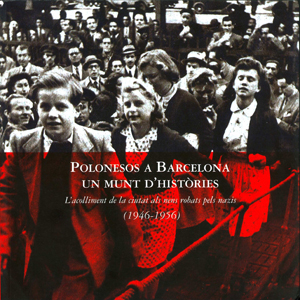
Polonesos A Barcelona: Un Munt D’Històries book cover featuring arriving children
Polonesos A Barcelona: Un Munt D’Històries L’acolliment de la ciutat als nens robats pels Nazis (1946-1956)
Consulate General of the Republic of Poland in Barcelona
First Edition 2008, Second Edition 2009
222 p., Dipòsit legal: B-52.092-2008
Available from the Consulate General of the Republic of Poland in Barcelona at polonia@kgbarcelona.org
From Barcelona comes a vibrant, moving account of hope and resilience in the form of a visually stimulating, richly illustrated trilingual book entitled in Catalan Polonesos A Barcelona: Un Munt D’Històries L’acolliment de la ciutat als nens robats pels Nazis (1946-1956) (Poles in Barcelona and Their Stories: How the City Welcomed Polish Children Stolen by the Nazis (1946-1956))”.
Ranging in age from 2 to 17 years of age, a total of 101 Polish children arrived in Barcelona in 1946 from various refugee camps across Europe. Meant as a temporary respite for the children, the settlement was started on the initiative of the Polish government-in-exile and the Polish Red Cross in collaboration with the Spanish government and local authorities in Barcelona.
While some of the children welcomed in Barcelona were either orphaned or separated from their parents through the tumults of war, the majority had an even darker past. Most of the younger children, being blond and blue-eyed, were forcefully removed from their Polish families by the Nazis in an effort to create a master Aryan race. Often little more than toddlers, they were stolen from their parents and placed with German foster families or in German orphanages in an effort to rob them of their heritage. The process of germanization undertaken by the Nazis was relentless and the children emerged from the war having lost a sense of their real identity, speaking more German than Polish and being distrustful of authority.
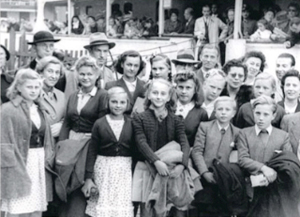
June 19, 1946: A group of children arrives in Barcelona.
“The paradise that was Barcelona,” for that is how many of them describe the years they spent there, was exactly what they needed to reclaim not only their sense of self but also their stolen childhoods. While a number of staff worked hard to ensure the children were educated, clothed, fed and entertained, one person in particular, Wanda Morbitzer Tozer, stands out as a vocal advocate, a confidante and a mother figure to all 101 children.
Adventurous and energetic, Wanda Morbitzer Tozer settled in Barcelona in 1931, after graduating from universities in Poland and in France. For a number of years, she worked as secretary to Honorary Consul of Poland Eduardo Rodón y Blasa. Through her role, Tozer developed contacts with the Spanish press as well as various levels of government. These contacts proved invaluable when, more than a decade later, Tozer acted as an intermediary between the Polish and Spanish authorities and a vocal advocate for the children.
“She was open to others, always ready to share,” writes Cristina Tozer de Fuster about her mother. “Without hesitation, she gave ten years of her life to the Polish children because they needed her.”
Always lobbying various levels of government for more funds, whether for shoes and clothes – which the children outgrew regularly; for Christmas presents – so the children may experience some joy; or for summer vacations – so they may have a taste of the beach, Tozer was known as an all round problem solver.
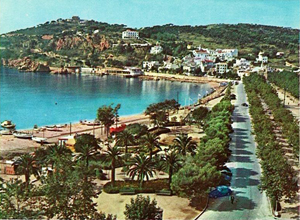
Seaside at San Feliu de Guíxols, where the children spent one of their summer vacations.
Some problems, though, even she could not solve. As the children gained confidence and shed their distrustful outer shells, they revealed a depth of longing that could not be easily bridged. “Who are my parents? Who am I?” they would ask. Some of them clutched old photographs, their biggest treasures, surely given to them by their parents when they were separated. They invariably searched their memories, but could come up with no more than “My Mom’s name was Mom and she was wearing a brown coat when I last saw her.” The details were sketchy at best, nothing they could build on to find their real families.
Tozer and the staff at Villa Vallcarca and residence at Calle Anglia 46, where the children lived, did their utmost to give the children the roots they were missing. Elementary level education was provided to them in Polish. They also received a religious education and learned about Polish culture. They formed strong brotherly and sisterly bonds with one another and learned how to have fun.
As they entered teenage years, most studied at local trade schools in Spanish, with the most promising students attending a locally-based international high school. They mingled with the Spaniards and the Catalans, mastering the language, inhaling the local culture and forming new friendships.
As the dust of war settled, the children started leaving. Some were found by relatives and repatriated back to Poland, Germany or France. As for the remaining ones, whose families could not be located, the decision was made not to send them back to communist Poland. At the same time, their prospects in Franco’s isolated and impoverished Spain were not judged favourable and instead, through agreements with Polish communities in Buffalo and New York, many emigrated to the United States upon adulthood.
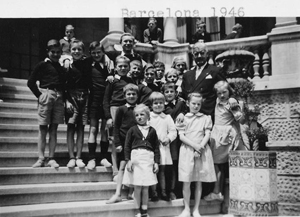
Children with Florian Piskorski of the American Polish War Relief, residence at Calle Angli 46, Barcelona, 1946
While many eventually formed their own families and led successful lives, they never forgot “the paradise that was Barcelona” and the care, affection and sense of self they got there. They continued to write to Wanda Morbitzer Tozer for years and visited her if they happened to be in Spain. The mix of Spanish, Catalan and Polish cultures left an unforgettable imprint on them and it’s not uncommon to hear they are reminded of their Polishness when hearing the Spanish language or tasting Spanish delicacies.
The visually stunning, trilingual (Catalan, Spanish and Polish) edition of Polonesos A Barcelona: Un Munt D’Històries is a treasure of a story and cries out to be translated into English, so that more of us can get to know it.
CR
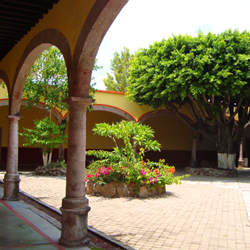

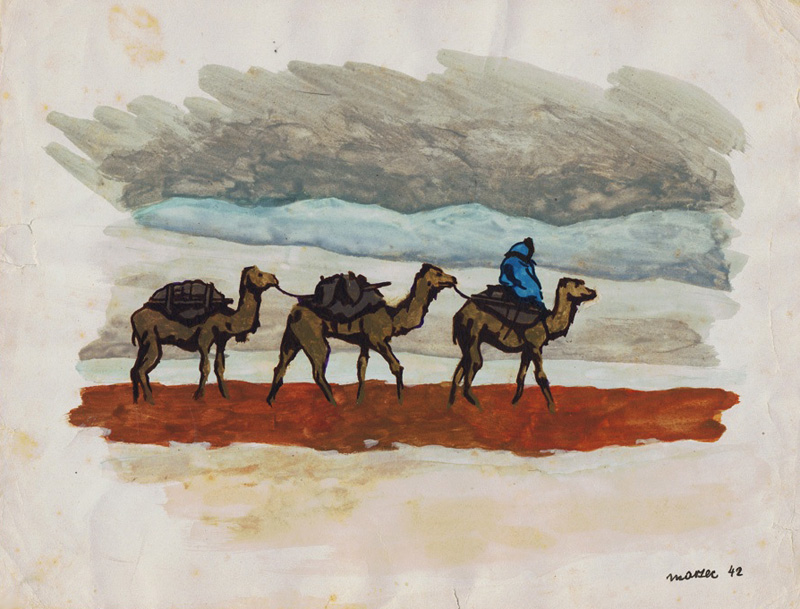
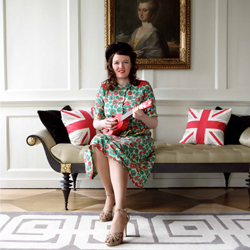
My mother is one of these children. Her name was Renata Sosnowska. She is in the 2nd photo, 2nd person from the right in the 2nd row (with pigtails), behind the last boy in the 1st row.
I am trying to get a copy of the book, get in touch with Wanda Tozer’s daughter and have many more photos that I am not sure how to best archive them. If you have any suggestions or information for me, I would appreciate any assistance you could give me.
Thank you!
Hi Elizabeth! Have you tried contacting the Polish Consulate in Barcelona at polonia@kgbarcelona.org? That’s the first place I’d start. Let us know if you’re able to reach them. Good luck!
ed. note: Aleksandra Gruzinska, a “Barcelona child” and now a professor at Arizona State University sent us this note and asked us to post it:
Trail of Hope: The Anders Army, an Odyssey Across Three Continents – I especially appreciated your review of the Norman Davies book and plan to order it for our University library. One paragraph needs to be added – General Anders’s extraordinary undertaking of sending a group of 120 Polish children from Italy to Barcelona, Spain. I doubt Davies knows about it. Anders cared very much about this group and made it a point to visit the children in Barcelona. AG
My mother was also one of these children. Her name was Krystyna Rasek. I HAVE a copy of the book. But what I was wondering was: Is there a translated to English copy of the book?